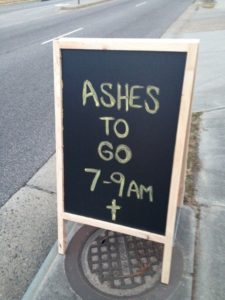Today’s post is from The Rev. Brian Hooper, M.Div., Psy.D., a licensed pastoral psychotherapist serving in private practice and in parish ministry in Nashville, TN. His website is www.drbrianhooper.com
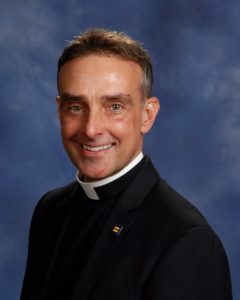 Myths are truth and wisdom
Myths are truth and wisdom
Most people think of myths as stories that are simply not true. Nothing could be further from the case. Myths are truth and wisdom packed inside stories so that they can get inside of us. We take in the stories and they in turn draw out into the world our deep resonance with the truth. We swallow the truth wrapped in the story and become that truth in the world.
Myths are not stories that are false, but stories that are so true that the truth cannot be confined to the details of the story. The truth is larger than the story itself.
A mythic perspective stirs the imagination to image in our own lives the power and often multivalent significance of the story or ritual.
For instance, the Eucharist is the body and blood of Christ for us sinners to eat and drink for the forgiveness of sins. (Luther’s Small Catechism). But if we confine it to simply “forgiveness for me,” then we miss the whole point.
Forgiveness affects relationships – with God, self, parish community, nation, world and all of nature. We become what we receive – bread for a world that hungers for the companionship (com = with; panis = bread) of God and cup for a world that thirsts for spiritual inebriation. Luther says as much as he writes in the Small Catechism, “For where there is forgiveness of sins, there is also life and salvation.” We are being renewed, salvaged, and called into the fullness of life today!
We participate in Jesus’ life because he has participated in our lives
We take into ourselves the life, death, and resurrection of Jesus who has first taken into himself all of creation. Our lives are given back to us in Christ through his body and blood conveyed under gifts of bread and wine. And we are strengthened by this transformed and transforming meal to let the false-self die so that we may be our authentic selves, created to live with integrity, reflecting the image of God. And we in turn take into ourselves whatever is hostile to the wholeness of our world, wrestling with it and crucifying it according to our station in life, so that the world can be raised more whole. What is said of Christ is also true of us, “Christ has died, Christ is risen, Christ will come again.” We participate in his life because he has participated in our lives. God is both wrapped up in and made visible in creation, and that includes us.
When the church practices this expansive and mythic way of thinking we live the TRUTH of the Gospel/Kingdom of God most fully. Where we simply literalize or confine our understanding of truth to the mere details alone, we empty the scripture stories, sacraments, and rituals of their truth.

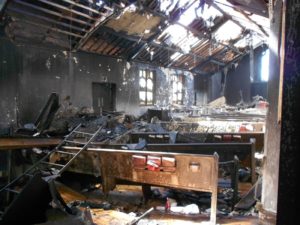 As we begin the forty days of Lent, we remember Jesus’ forty years in the wilderness as well as the Israelites’ forty years of wandering. The congregation I serve, First Lutheran in Lorain, Ohio, is also experiencing a time of wandering in the wilderness after a fire destroyed our ninety-year-old building in August of 2014. The last two and a half years have been difficult, but they have also been life-affirming.
As we begin the forty days of Lent, we remember Jesus’ forty years in the wilderness as well as the Israelites’ forty years of wandering. The congregation I serve, First Lutheran in Lorain, Ohio, is also experiencing a time of wandering in the wilderness after a fire destroyed our ninety-year-old building in August of 2014. The last two and a half years have been difficult, but they have also been life-affirming.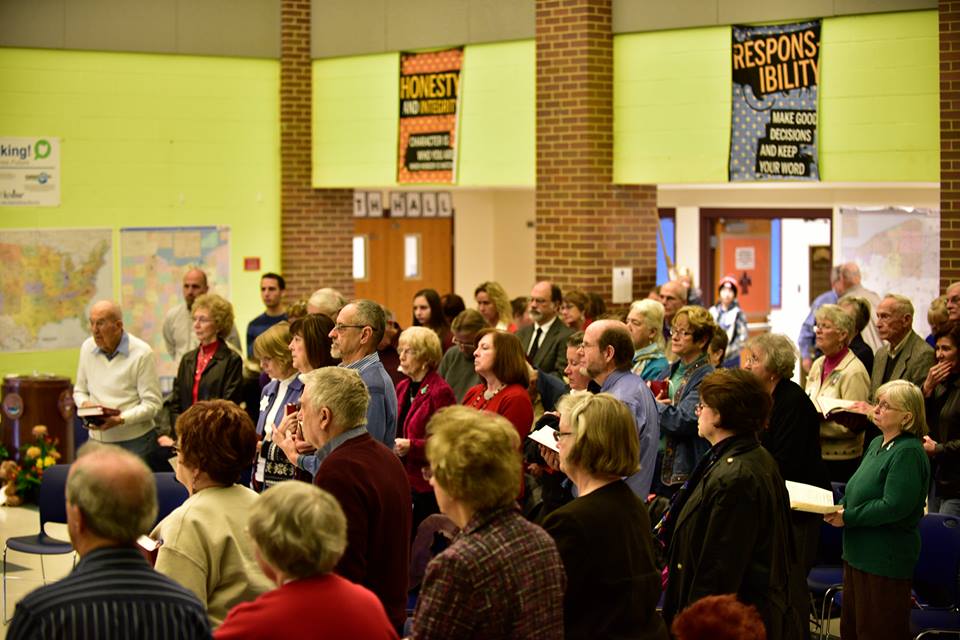
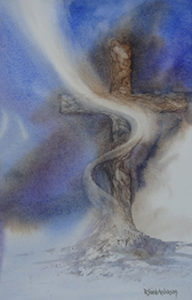
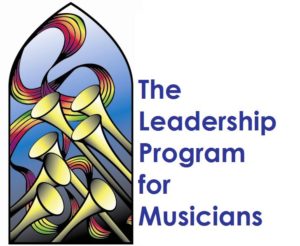
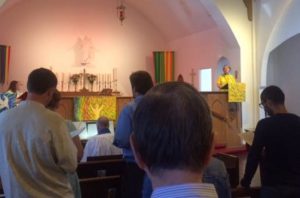
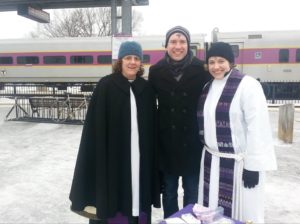
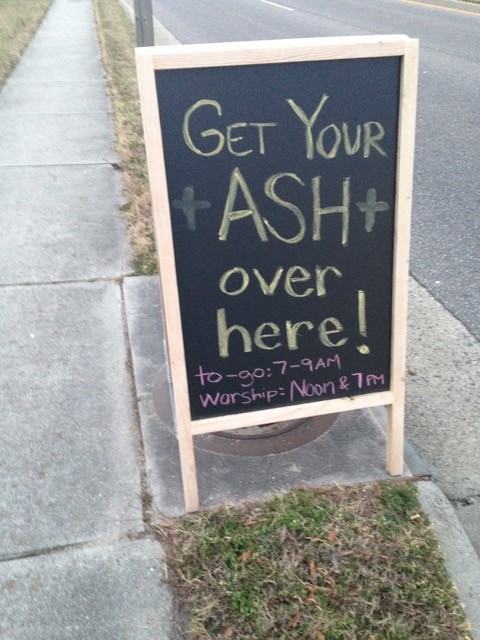 In 2016, after moving back to Virginia, sunrise on Ash Wednesday was warmer (not that my Southern blood allowed me to really appreciate it). The congregation I serve in Chesapeake, Virginia does not have a centralized gathering spot for commuters, so I simply stood outside the church, again with my little table, ashes, hand warmers, and sign. Some parishioners stood with me to pray with those who stopped by, and more stopped since they would not be able to make either of our worship services that day.
In 2016, after moving back to Virginia, sunrise on Ash Wednesday was warmer (not that my Southern blood allowed me to really appreciate it). The congregation I serve in Chesapeake, Virginia does not have a centralized gathering spot for commuters, so I simply stood outside the church, again with my little table, ashes, hand warmers, and sign. Some parishioners stood with me to pray with those who stopped by, and more stopped since they would not be able to make either of our worship services that day.